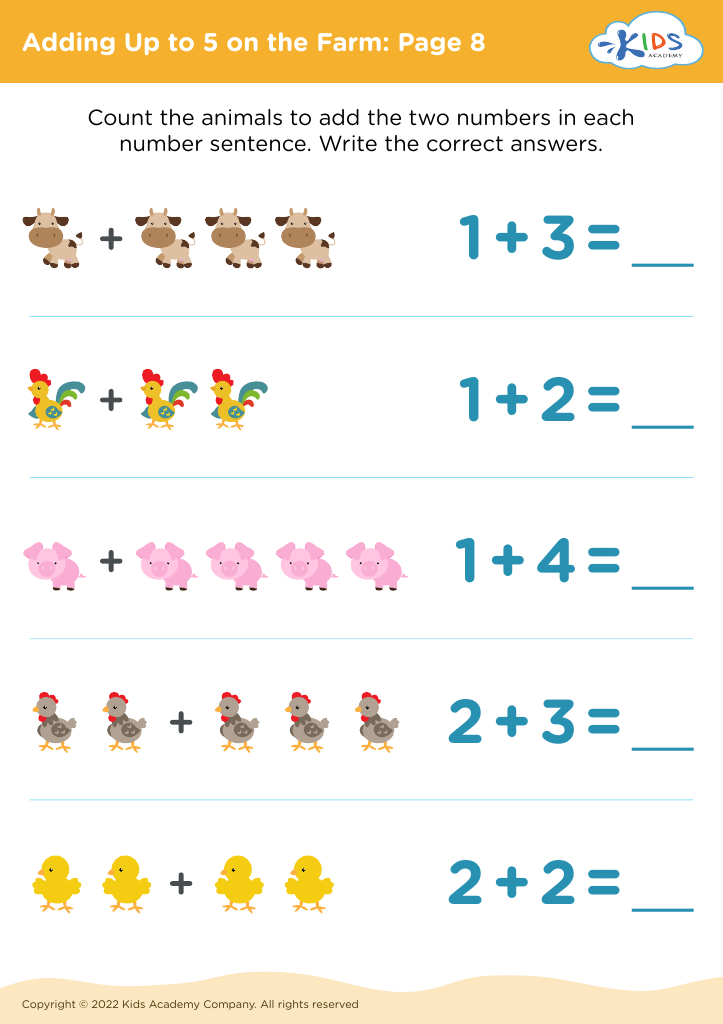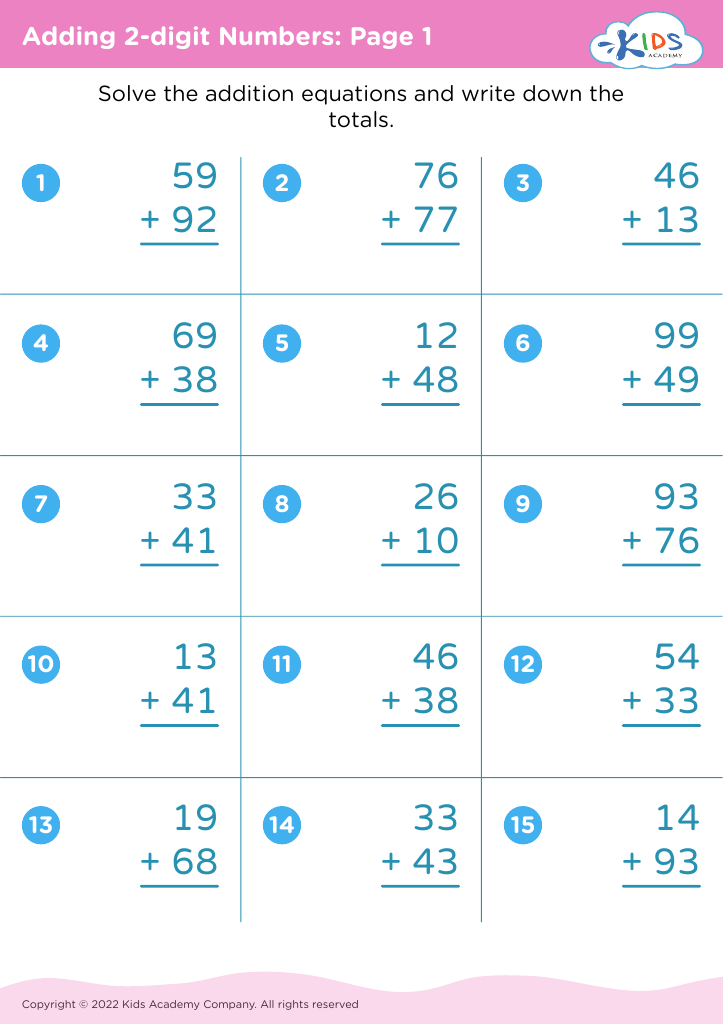Developing counting skills Addition Worksheets for Ages 3-8
3 filtered results
-
From - To
Enhance your child's mathematical foundation with our "Developing Counting Skills Addition Worksheets for Ages 3-8." These engaging worksheets are designed to help young learners build essential counting and addition skills through fun and interactive exercises. Tailored for early learners, our resources utilize charming visual aids and simple problems to make learning enjoyable and effective. Perfect for at-home practice or classroom use, these worksheets support and stimulate your child's developing math abilities, ensuring a strong start in mathematics. Empower your child's learning journey with our expertly crafted addition worksheets, and watch their confidence grow!
Developing counting and addition skills in children ages 3-8 is crucial as these skills form the foundation of their mathematical understanding. Parents and teachers should prioritize these skills for several reasons. First, early mastery of counting helps children grasp the concept of numbers, which is essential for more complex mathematical operations. It strengthens their number sense, enabling them to understand quantities, numerical relationships, and patterns.
Counting and basic addition are also tied to cognitive development. Engaging in these activities sharpens a child's memory, attention, and problem-solving abilities. For instance, counting objects or adding small quantities together helps children develop logical thinking, which is applicable beyond math.
Socially, early competency in math can boost a child's confidence and curiosity. Math-related activities provide opportunities for interactive play, fostering social skills such as cooperation and communication. Additionally, children with strong early math skills are often better prepared for formal education, giving them a head-start in their academic journey.
Incorporating counting and addition into everyday activities makes learning seamless and enjoyable, creating positive attitudes towards math. Simple tasks, like counting toys or adding fruit slices, make learning feel natural and engaging. Therefore, focusing on these skills not only prepares children for future academic success but also nurtures their holistic growth.



















